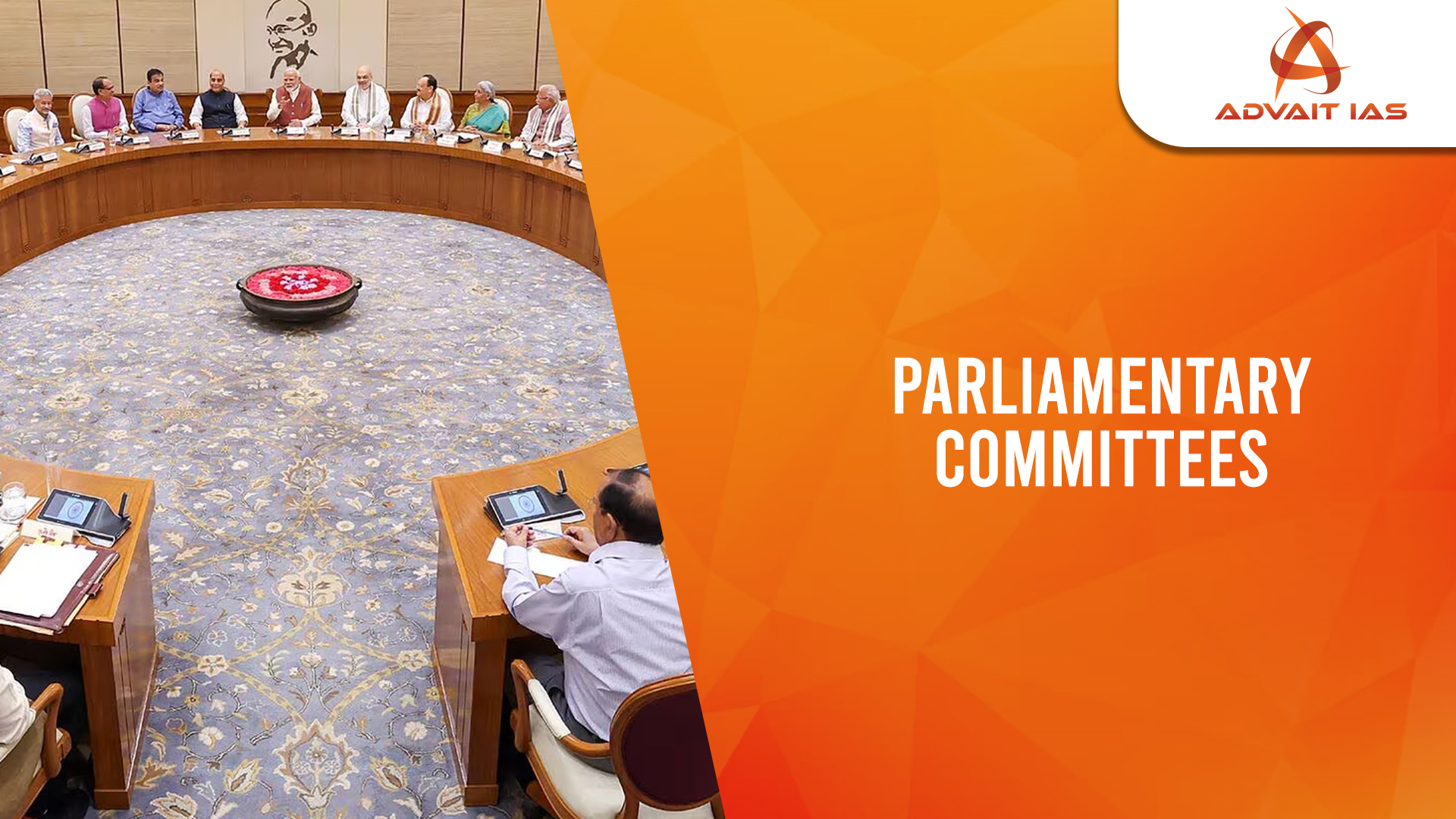At the National Conference of Estimates Committees (May 2025), the Lok Sabha Speaker emphasized that Parliamentary Committees are complementary to the government, not adversaries. He urged governments to implement committee recommendations seriously and in letter and spirit to ensure better governance.
What are Parliamentary Committees?
- Bodies constituted by Parliament to handle specific legislative, financial, or administrative functions in detail.
- Authority: Derived from Article 105 (Privileges of MPs) and Article 118 (Rules of Procedure) of the Constitution.
- Servicing: Managed by the Lok Sabha/Rajya Sabha Secretariat, working under the direction of the Presiding Officers.
Types of Parliamentary Committees
Standing Committees (Permanent, Annual Reconstitution)
- Financial Committees: Public Accounts Committee (PAC), Estimates Committee, Committee on Public Undertakings.
- Departmentally Related Standing Committees (DRSCs): Examine ministry budgets, bills, and policies.
- Others: Committee on Petitions, Government Assurances, Subordinate Legislation.
Ad hoc Committees (Temporary, Task-specific)
- Formed for special purposes (e.g., JPC on Data Protection Bill, Select Committee on GST).
- Dissolve after submission of the report.
Significance of Parliamentary Committees
1. Ensure Executive Accountability
- Though advisory, their reports create pressure through public scrutiny and media coverage.
- Encourage in-depth, apolitical discussions behind closed doors, away from political theatre.
2. Facilitate Informed Legislation
- Enable MPs to consult experts, civil society, and stakeholders.
- Clause-wise bill analysis improves quality and democratic legitimacy of laws.
3. Mini-Parliaments with Bipartisan Engagement
- Committees ensure cross-party collaboration, allowing detailed scrutiny of policies, demands for grants, etc.
- Function round-the-year, ensuring continuity of legislative oversight.
4. Institutional Learning and Capacity Building
- Act as training grounds for new MPs to develop subject-matter expertise.
- Provide value-added governance inputs, free from party whip.
Challenges Facing Parliamentary Committees
1. Limited Authority: Recommendations are not binding and lack enforcement mechanisms.
2. Resource and Research Deficit: Inadequate technical support and research staff, especially for DRSCs.
3. Low Attendance
- Average 50% MP attendance in committee meetings vs. 84% in Parliament.
- Leads to suboptimal deliberation and diluted recommendations.
4. Declining Parliamentary Time
- Only 67 days/year average sitting (2009–19) 120+ earlier decades.
- Only 17% of Budget demands were discussed in the 16th Lok Sabha.
5. Political Interference
- Member selection influenced by party loyalty, affecting impartiality and rigour.
6. Overburdened DRSCs
- Each DRSC often covers multiple ministries, limiting subject-depth and follow-up.
Measures to Strengthen Parliamentary Committees
1. Enhance Research & Expert Support
- Set up dedicated research wings, engage domain experts, and provide digital tools for analysis.
2. Institutionalize Accountability
- Mandate Action Taken Reports (ATRs) from ministries.
- Require written justification for rejection of recommendations.
3. Mandatory Referral of Bills
- Amend rules to ensure all major Bills (non-financial) go through committees.
- Rationalize DRSC mandates to reduce ministry overload and allow specialization.
4. Boost MP Engagement
- Offer recognition, incentives, or penalties to improve attendance.
- Conduct regular training/orientation on committee roles and significance.
5. Increase Transparency & Public Engagement
- Publish simplified reports for the public.
- Promote e-consultations and stakeholder outreach through digital platforms.
Parliamentary Committees are the backbone of legislative scrutiny and pillars of democratic accountability. The Speaker’s recent call highlights the urgent need to revitalise committee culture. As India moves toward evidence-based and citizen-centric governance, empowering committees with research, independence, and authority is essential to ensure laws are not only well-drafted but also effectively implemented.






